News
Yahaya Bello remains a wanted man, slated for arrest – EFCC
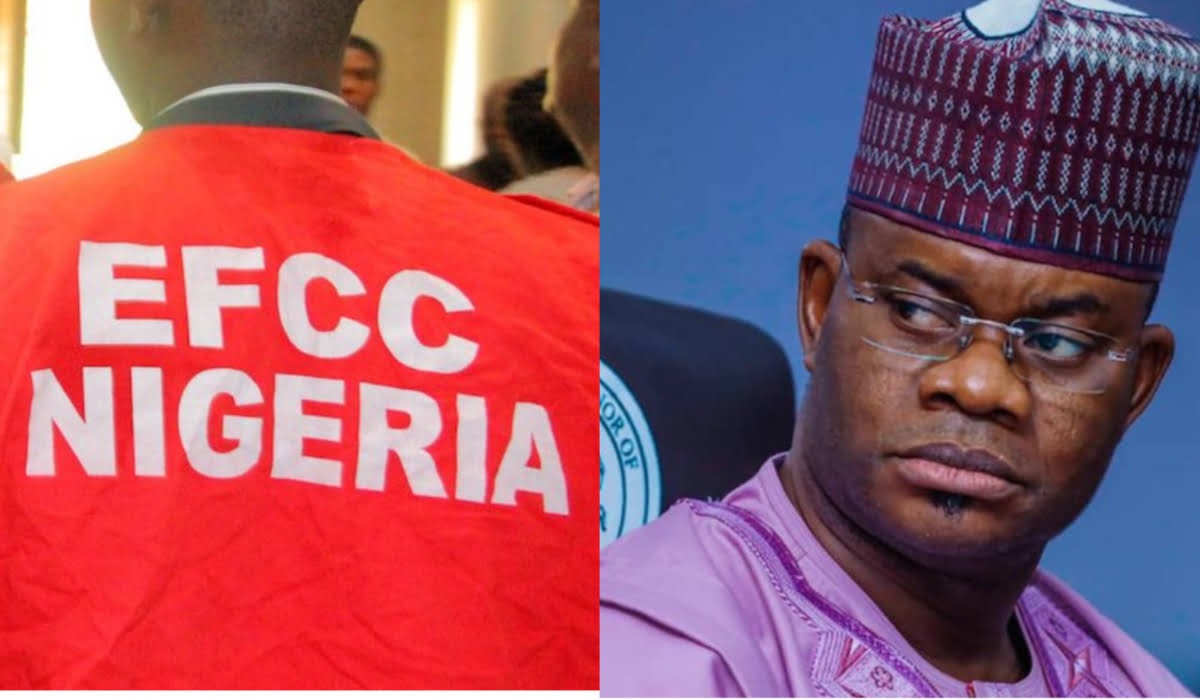
Immediate past governor of Kogi State, Yahaya Bello, is still on the run 107 days after being declared wanted by the Economic and Financial Crime Commission.
EFCC had on April 18, 2024, declared Bello wanted in connection with an alleged case of money laundering to the tune of N80,246,470,089.88.
Saturday PUNCH recalled that a group of armed men identified as ‘Special Forces’ and some policemen prevented EFCC operatives from apprehending Bello at his Wuse Zone 4, Abuja residence on Wednesday, April 17.
The current governor of Kogi State, Usman Ododo, also rushed to Bello’s house and escorted him out of the location.
EFCC had earlier been granted a warrant of arrest by a Federal High Court in Abuja to apprehend the former governor.
Bello and three other suspects, Ali Bello, Dauda Suliman, and Abdulsalam Hudu, were to be arraigned before Justice Emeka Nwite on 19 counts related to money laundering.
But the inability of the anti-graft agency to arrest the former Kogi State governor stalled the arraignment.
The House of Representatives candidate of the Peoples Democratic Party for Dekina/Bassa Federal Constituency in the 2023 elections, Austin Okai, had on June 21 claimed that Bello was hiding in the state Government House in Lokoja.
Okai’s claim contradicted the earlier reports that Bello had been smuggled out of the country after the raid on his house.
However, the EFCC has continued a manhunt for Bello, who had refused to surrender himself for arrest.
Speaking on the matter, the Executive Director, Rule of Law and Accountability Advocacy Centre, Okechukwu Nwanguma, said the EFCC was not ready to arrest Bello.
According to him, the anti-corruption agency has sophisticated equipment to track and arrest Bello.
Nwanguma, in an interview with Saturday PUNCH, said, “It is surprising that despite all the hot waves and drama of the EFCC, including the vow of the chairman that he would resign if he couldn’t arrest Yahaya Bello, the man is still out there more than three months after he was declared wanted.
“If they truly wanted to arrest Yahaya Bello, they would have arrested him. If this was a case of a poor man, they would have easily arrested him.”
However, the spokesperson for the EFCC, Dele Oyewale, dismissed the insinuation that the agency had been compromised or unwilling to arrest the former governor.
Oyewale maintained that Bello remained wanted until arrested.
He said, “The matter is in court and there are various orders of the court. Senior lawyers who failed to bring him (Bello) to court are already slated for discipline.
“If an anti-corruption agency declares a suspect wanted, all over the world, he remains wanted until he is arrested.
“Yahaya Bello has been declared wanted and he remains wanted. Judicial processes have been instituted in court and they are ongoing.”
News
Enugu Reps PDP Caucus Welcomes LP Members To Its Fold
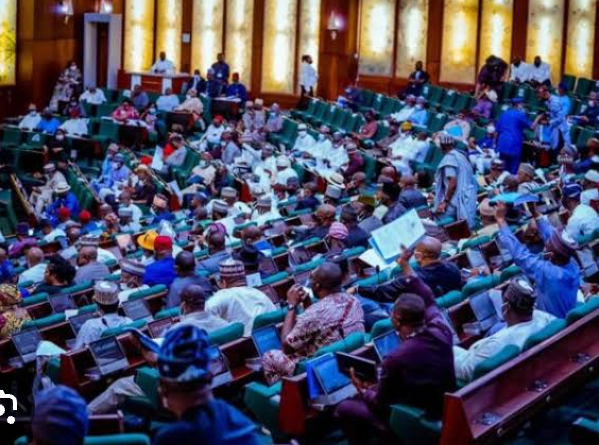
Members of the Enugu State Caucus of Peoples Democratic Party, ( PDP) in the House of Representatives, Rt. Hon. Nnolim Nnaji , Rt. Hon. Martins Oke and Hon Anayo Onwuegbu have welcomed Rt. Hon. Dennis Agbo and Hon. Chidi Mark Obeta of Labour Party, (LP) to the PDP fold.
They observed that the visionary leadership of Dr Peter Ndubuisi Mba in Enugu State has ignited massive decamps and unprecedented upsurge of membership of the Peoples Democratic Party, (PDP) in the state.
The caucus in a statement issued after the two members of the House of Representatives, Rt. Hon Dennis Agbo of Igboeze North/ Udenu and Chidi Mark Obeta who represents Nsukka/Igboeze South formally announced their transfer of membership to PDP at the resumption of House plenary on Tuesday said it was gladdening to receive them into the PDP fold.
They stressed that PDP in Enugu State was witnessing a great rebirth as a result of the transformative development agenda being unleashed in various sectors of the economy of the state by Governor Mba which has received global commendations.
The Enugu State caucus Leader, Rt. Hon. Nnolim Nnaji on behalf of the members further noted that Governor Mba’s investments in infrastructure, agro economy, and security among others have made Enugu State a tourist’s haven adding that with the good governance structure he has put in place, his second tenure would be a walkover.
News
2025 budget: Tinubu Seeks NASS Approval For N1.784trn FCT Statutory Budget
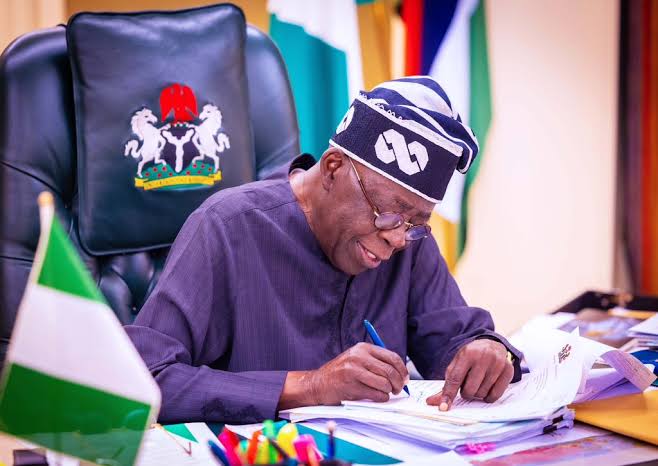
News
Finally , DTHA becomes one party assembly as Speaker, 21 other PDP members defect to APC
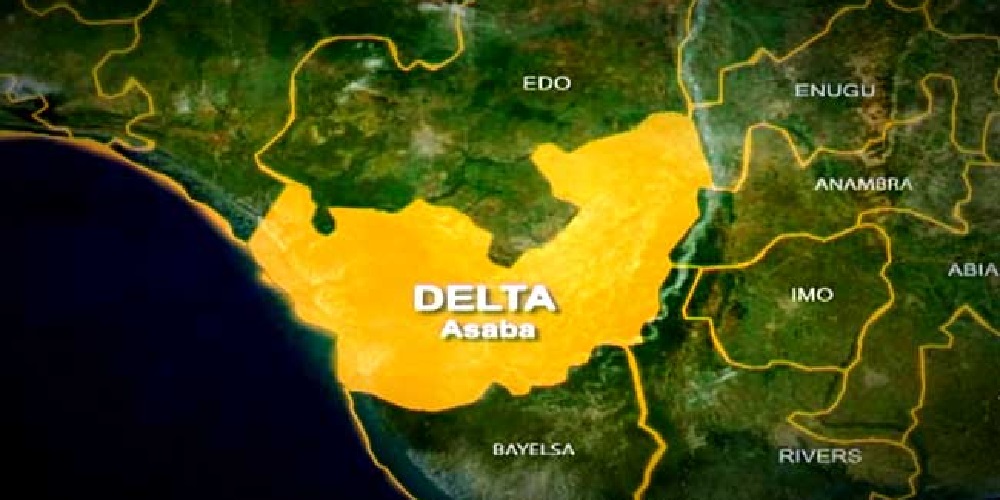
Speaker of the Delta State House of Assembly, Rt. Hon. Emomotimi Guwor, along with twenty-one other former members of the Peoples Democratic Party (PDP), elected into the Assembly has officially defected to the All Progressives Congress (APC), following a major realignment of political stakeholders across the state.
The defection of the twenty-two lawmakers has effectively transformed the Delta State House of Assembly into a one-party legislature, as the remaining seven members were originally elected on the ticket of the APC.
Announcing the development on Tuesday during the resumption of plenary after the Easter break, the Speaker stated that the decision was the result of extensive consultations with their constituents and political leaders throughout the state.
He emphasized that the move aligned with Section 109 of the 1999 Constitution, as amended.
While expressing appreciation to members for their contributions so far, Guwor urged the House to ensure the completion of all pending bills as the second legislative session nears its end.
He noted that the political shift towards the APC was in response to the realignment of stakeholders and the desire to align with the Federal Government under President Bola Tinubu’s leadership.
“The mass defection of members of the Peoples Democratic Party, led by Governor Sheriff Oborevwori, to the All Progressives Congress was made in the overall interest of Deltans and the state,” the Speaker said.
He explained that the decision followed extensive consultations held on April 23 and which cumulated on the official reception on April 28, 2025, at the Government House and the Cenotaph, respectively.
He said: “We are fully committed to partnering with the Federal Government to deliver greater development to Deltans.
“On behalf of the House, I commend the courage and visionary leadership of our Governor, Rt. Hon. Sheriff Oborevwori, in making this strategic and timely decision.
“As a legislative body, we stand with His Excellency in this endeavour. This renewed partnership between the state and Federal Government must be supported and allowed to flourish, so that we can begin to enjoy its benefits in the shortest possible time.”
He informed the House that he had received twenty-two letters (including his own) notifying of the change of party affiliation from the PDP to the APC.
The defection, he said, was driven by instability within the PDP’s national leadership and factional divisions within the South-South Zonal Executive Committee, leading to internal conflicts and disunity within the party.
Citing Section 109(1)(g) of the Constitution of the Federal Republic of Nigeria, 1999 (as amended), the Speaker affirmed the constitutional basis for the defection.
“With this action, the Delta State House of Assembly is now composed entirely of members from the All Progressives Congress. We thank our constituents for endorsing this progressive course of action”.
A motion to adopt the letters of party change was moved by the Majority Leader, Hon. Emeka Nwaobi, and seconded by Hon. Ferguson Onwo, who represents Isoko South II.
Speaking to journalists after the plenary, the Majority Leader, Hon Emeka Nwaobi reiterated that the defection was prompted by the crisis within the PDP.
“Our decision was based on the instability at the national level and the factionalization at the South-South level. Consequently, we chose to move to the ruling All Progressives Congress, in accordance with Section 109 of the 1999 Constitution, as amended,” he said.
-
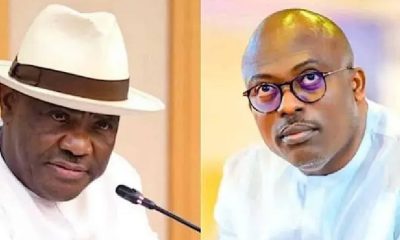
 Opinion12 hours ago
Opinion12 hours agoRIVERS, WIKE, FUBARA, AND THE WAY FORWARD
-

 Politics11 hours ago
Politics11 hours agoJust in: Delta PDP Reps members defect to APC
-

 News22 hours ago
News22 hours agoFULL STEPS: How to check 2025 JAMB results
-

 News22 hours ago
News22 hours agoMinistry denies awarding N13bn contracts without due process
-

 News16 hours ago
News16 hours agoVDM may be released on Tuesday
-

 News13 hours ago
News13 hours agoNANS Barricades Lagos-Ibadan Expressway Over Alleged NELFUND Mismanagement
-

 News13 hours ago
News13 hours agoCourt bans Nnamdi Kanu’s in-law from 3 proceedings over live streaming
-
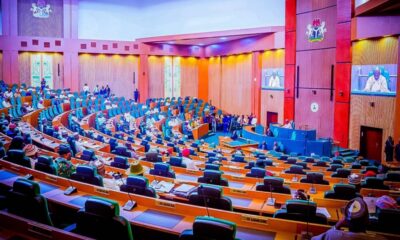
 News9 hours ago
News9 hours agoTension As Lawmakers Warns of Public Revolt Over Insecurity





